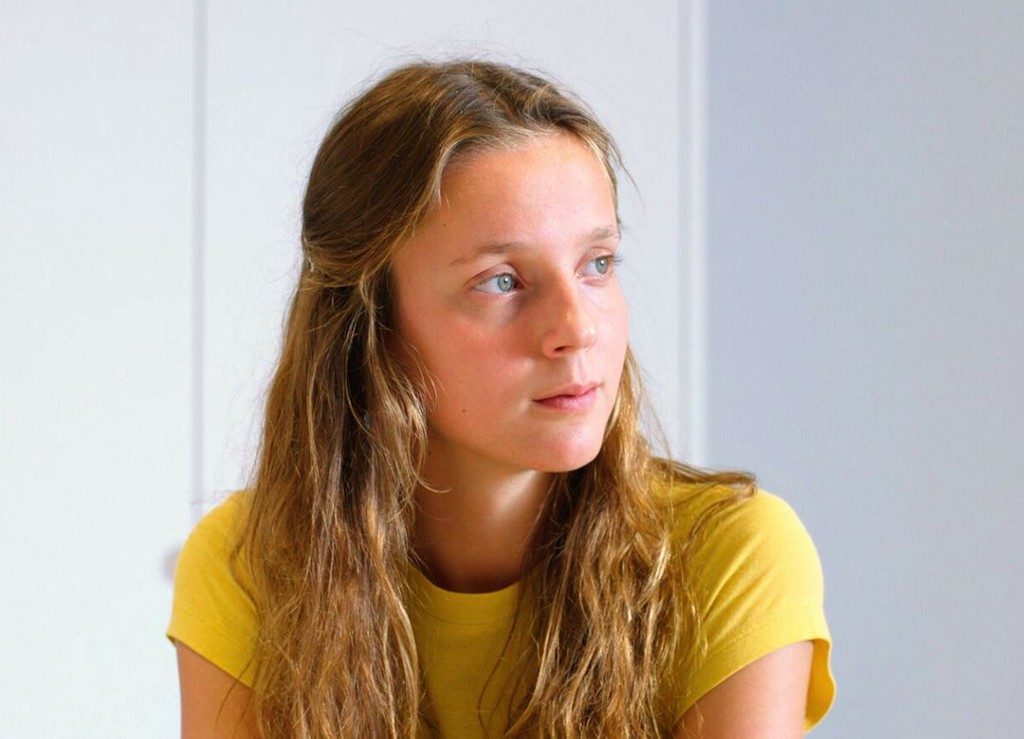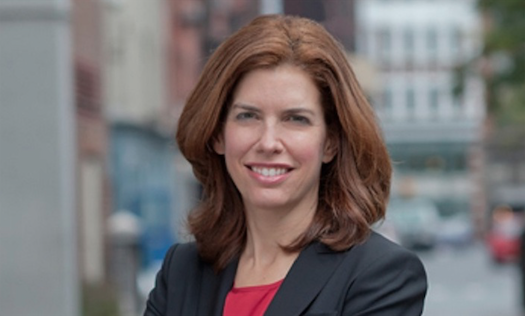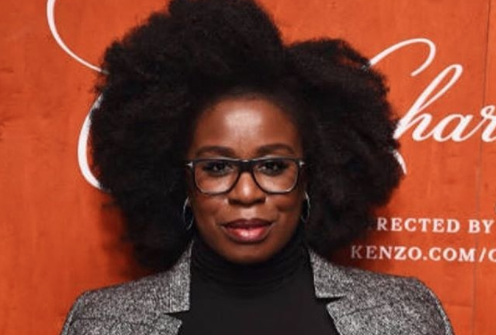Katharina Wyss is a Swiss filmmaker based in Berlin. She has previously written, directed, edited, and produced commercials and short films “Es war einmal ein König,” “1000 Meilen von Taschkent,” and “Minusland.” “Sarah Plays A Werewolf” (“Sarah joue un loup garou”) marks Wyss’ first feature. She’s currently writing her next film.
“Sarah Plays A Werewolf” will premiere at the 2017 Venice International Film Critics’ Week on September 3.
W&H: Describe the film for us in your own words.
KW: The film is about 17-year-old Sarah who lives in a small town in Switzerland, is involved in theater, and gets very mixed up with her emotions, fiction, and reality.
W&H: What drew you to this story?
KW: Inexplicable suicides and other unpleasant events happening to female friends in my youth. The ambition to create a very singular experience.
W&H: What do you want people to think about when they are leaving the theater?
KW: I’d rather not spoil anybody’s thoughts!
W&H: What was the biggest challenge in making the film?
KW: Preparing a shoot and then not shooting.
W&H: How did you get your film funded? Share some insights into how you got the film made.
KW: Swiss Film Funding, national and regional. Swiss Foundations. The team and cast contributing by working for lower wages. And since we didn’t get TV money to close the financing, the German Film and Television Academy (DFFB) joined as co-producer and saved the film by providing technical support.
W&H: What does it mean for you to have your film play at the Venice Film Festival?
KW: That a work of many years will see the light of the day in a friendly and inspiring environment. The team from the Venice Critics’ Week are wonderful people.
That I can offer the many great people who’ve been working on this film — team and actors — the audience I think they deserve.
That my work and artistic efforts are getting recognition.
W&H: What’s the best and worst advice you’ve received?
KW: Best: Find yourself a co-author.
Worst: A young woman like you shouldn’t make a film about such a dark subject.
W&H: What advice do you have for other female directors?
KW: None! They need jobs, equal pay, equal budgets.
W&H: Name your favorite woman-directed film and why.
KW: There isn’t just one, but these are three films that were in my mind during the making of my film: “Saute ma ville” by Chantal Akerman, “Cléo de 5 à 7” by Agnès Varda, and “Une vraie jeune fille” by Catherine Breillat.
Because they are beautiful and reckless and funny!
W&H: There have been significant conversations over the last couple of years about increasing the amount of opportunities for women directors yet the numbers have not increased. Are you optimistic about the possibilities for change? Share any thoughts you might have on this topic.
KW: I have to be optimistic!
Mastery is achieved through work and experience, so here’s my suggestion: Give 50 percent of all the jobs — big budget jobs, too — funding, and main competition slots to women, and offer them equal pay. If the art of cinema should be dead after 10 years of strictly applying this rule, because the women all made such bad films, change the rule again.







